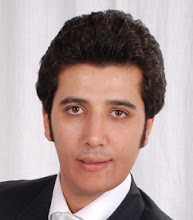Zarghani’s Response to Elham:

A day after the spokesperson for the Iranian government, who is also the country’s minister of justice publicly criticized the work of Iran’s state-run national radio and television network, Zarghami, the head of the network responded by reminding the spokesperson that the president had repeatedly called on the members of the cabinet not to engage in public verbal criticism of each other, and ridiculed the minister by advising him to study the laws of the country.
Zarghami said, “Among the government’s orders, which are repeatedly emphasized by the president, is one that calls on cabinet members not to speech against each other and therefore one would expect the spokesperson of the administration to respect this more than others.” Having said that, he continued with an advice to the minister by saying, “The trust of the public and their satisfaction are the most important principles for the managers and art professionals of the national media which is itself enforced by the supervision of the public. Furthermore, the principles of supervision over the national radio and television are defined in detail in the laws of the country whose study I advise.”
This response came after administration spokesperson Gholam Hossein Elham went to ISNA student news agency and made harshly criticized the radio and TV organization on the fourth day of a week that has been celebrated as the week of the government.
When speaking about the radio and TV organization, Elham said, “There is no sense of responsibility at the radio and television network.”
The spokesperson further raised this question: “Where is the supervision over the radio and television network? I state that there is no supervision over the radio and television network. Some believe that this institution is under the control of the supreme leader, whereas the leader merely appoints the head of the organization as is required by the constitution. It is not true that just because the leader has made an appointment, he is also personally responsible for everything that goes on there.”



No comments:
Post a Comment